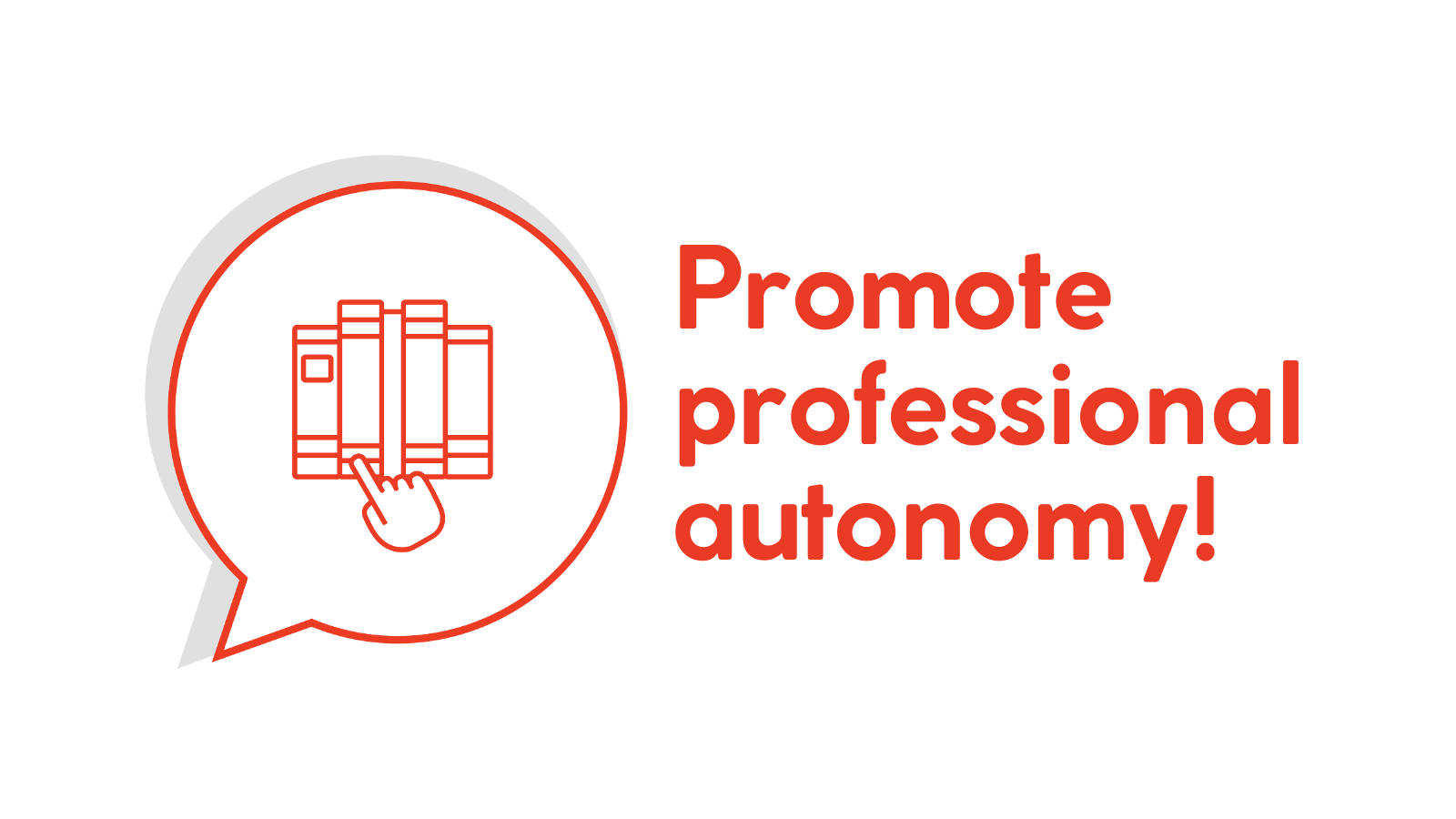
Professional autonomy and academic freedom are key to making the teaching profession attractive
Teachers are the greatest resource of any education system, as they play a critical role in shaping the future of students. Professional autonomy gives teachers, trainers, academics, and other education personnel control over their work, is motivating, leads to greater job satisfaction and a higher level of professional engagement.
To improve the attractiveness of the teaching profession, teachers should be trusted and provided with the professional autonomy and academic freedom to decide the most appropriate approach to meet the needs of children and students considering local conditions within any curriculum framework to ensure quality and inclusive education. The Annex I of the Rome Communiqué defines academic freedom as “an indispensable aspect of quality learning, teaching and research in higher education as well as of democracy” and institutional autonomy as its constitutive element, and it underlines that “societies cannot be genuinely democratic without honouring academic freedom and institutional autonomy”. Teaching free from political, economic and religious influence helps to ensure a knowledge-based society wherein people make rational and reasonable decisions as citizens and in democratic processes.
Recent data shows that across the OECD countries on average only 42% of principals report that their teachers have a significant responsibility over a large share of tasks related to school policies, curriculum and instruction. According to the Education and Training monitor (2023) report, teacher autonomy is generally high across EU countries (like in France, Estonia, Sweden, Italy, Czechia), but lower percentages of teachers feel they can participate in school decision-making and collegial teacher autonomy. Data from the report shows that the countries where teachers feel more involved are Bulgaria, Estonia, Latvia, Romania, Hungary, while teachers feel the least involved in decisions in countries such as Belgium (French Community), Cyprus, Portugal, Malta, Italy.
Academic freedom and institutional autonomy are the central pillars of the education sector; they run in parallel to the need for decent salaries, fair working conditions, efficiency, quality and inclusiveness of education. Threats to academic freedom - as measured by the European Parliament Academic Freedom index - arise from authoritarian governments, reductions in core public funding, performance-based funding, market-driven internationalization, and precarious academic employment. To ensure professional autonomy, every school and university should develop an appreciative performance policy for their teachers and install a stimulating feedback culture. Evaluation and teacher assessment can be part of a participative personnel policy, but they should never be an obstacle to professional autonomy and academic freedom in teaching and research. Furthermore, teachers and researchers cannot be restricted in their work in order to conform with labour market needs. Assessment of teachers and academic staff should not be punitive or gender biased. It is crucial to resist the increasing pressure from the labour market and trends such as increasing managerialism which considers schools and universities as private enterprises. These attempts hinder the professional autonomy of the teachers, the academic freedom of teachers and institutional autonomy. Policy makers should recognise that threats to academic freedom exist in ‘liberal democracies’ as well as more authoritarian political systems. National governments should rethink current approaches to funding, governance and staffing in order to strengthen academic freedom in Europe. Collaborative school leadership plays also a key role in ensuring the professional autonomy of teachers.
To safeguard professional autonomy, sustainable and effective public funding and the active participation of teachers, trainers and education staff in governance and in the re-establishment of the link between job security and academic freedom is key. It is important to ensure sustainable, and effective public funding of education and to resist proposals which seek to privatise, market, and commercialise the education sector. Especially since these proposals have a direct effect on the professional autonomy of teachers as they risk pushing the teacher-student relationship into one of service providers and customers. For this, the role of education trade unions is fundamental. National governments should ensure that academic freedom is a genuine priority during the 2024-27 cycle of the Bologna Process.